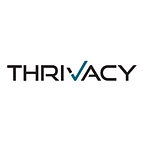What is one tip you have for protecting your employees’ online privacy in the workplace?
To help you protect your employees’ privacy online, we asked business owners and tech experts this question for their best advice. From validating senders and callers independently to assigning two-factor authentication, there are several tips that may help you protect your employees’ online privacy in the workplace.
Here are nine tips for protecting employee online privacy in the workplace:
Validate Senders and Callers Independently
Businesses are more prone to becoming a victim of phishing than private individuals. Such attacks usually deploy social techniques to access someone’s computer, which is often also used privately.
A simple method of validating if a caller or email sender is who they are is simply calling them on a number found on their website or business register. Although their caller ID or the email may seem legitimate, initiating a connection independently can eliminate the chances of being tricked by masking software. In turn, it can prevent costly surprises such as losing access to the primary private email or the credit card.
Michael Sena, SENACEA
Update Passwords
Cybercriminals become better and better every year at cracking into our passwords and accessing our valuable information. Oftentimes, out of habit or just ease of use, we use the same passwords for many different portals, but this just makes online criminals’ jobs easier. Consider using more difficult and unique passwords across all accounts and investing in a secure password manager like LastPass or Keeper.
Brandon Brown, Grin
Avoid Certain Browsers
We encourage our employees to avoid certain browsers to have better online privacy. Depending on the service provider of the browser, employees’ privacy can be either great or easily accessed. As a company, do your research to find the best privacy browser for your employees to use in their day-to-day work.
Michael Jankie, Natural Patch
Avoid Using Public Wi-fi in the Workplace
Since public Wi-Fi is not consistently secure, others might have the option to block the information you send. Therefore, utilize public Wi-Fi sparingly, especially at the workplace. On the off chance that you really need to use a public Wi-Fi network, then use a Virtual Private Network (VPN).
Daniela Sawyer, FindPeopleFast
Use Unique and Obscure Passwords
Encourage your employees to use unique passwords for each online platform that they use for work. Furthermore, they should make these passwords obscure and not too simple or obvious. This will make it harder for hackers to access employees’ information. Password programs such as LastPass or Dashlane can help employees to keep track of many passwords in case they do not remember them.
Matt Woods, SOLD.com
Safeguard Confidential Details of Employees
When an employee entrusts confidential professional and personal information to a company, it is the organization’s responsibility to safeguard the privacy of its employees. A physical or virtual tag proclaiming any sensitive data as “confidential” will alert any personnel coming in contact with the document, so they handle it with care. Limited and monitored access to such information also helps assign it adequate protection from external threats.
Krista Haws, Dripped Coffee
Communicate the Importance of Online Privacy
At Brosix, we have always made sure that security and privacy are a priority from the very beginning — with our clients, users and employees. There are many steps we have taken in order to provide full protection and comfort to everyone involved in our company. The one tip I have in terms of employees is — communication. Ensure that employees understand their responsibility to protect personal data and the different steps they must take in order to do so. We have seminars once a month; sometimes we format it like a quiz or a game, other times we may invite a data privacy field specialist.
As an employer, remember to check that all anti-virus, anti-spyware, and firewall programs are up-to-date! We are fortunate enough to live in 2022, where we have all the necessary software available to use.
Stefan Chekanov, Brosix
Make Cybersecurity Training Available
It is more important than ever to provide all personnel with mandated and regularly updated cybersecurity training. Organizations should do all possible to preserve their remote employees’ privacy. In many cases, however, it is up to employees to exhibit prudence and discretion in how they conduct themselves online. Providing cybersecurity training is one approach to ensure that everyone is on the same page.
Many of these behaviors are already widespread practice among IT professionals. Still, teaching employees on a bigger scale will be a struggle, and it will be up to those employees who are already aware of the risk to help support remote privacy efforts.
Muskan Rai, Web Hosting Advices
Assign Workplace Identities With 2FA
We protect employees’ online privacy by assigning them different workplace identities. It makes them anonymous on the network, protecting their identity and data. Employees must use a company username with two-factor authentication to access the system. That way, no one can access an employees’ workspace without their permission, protecting the workforce’s privacy and providing secured access to the company database.
Jonathan Tian, Mobitrix
About our Guest Contributor: Terkel creates community-driven content featuring expert insights. Sign up at terkel.io to answer questions and get published.
Thrivacy takes privacy seriously. We fully believe that as an individual you should own your PII (self-sovereign identity) and choose what and when to share that information on your terms. As we navigate massive innovation and boosts in the digital economy, privacy is at the forefront of our efforts.
Originally published at https://www.thrivacy.io.
